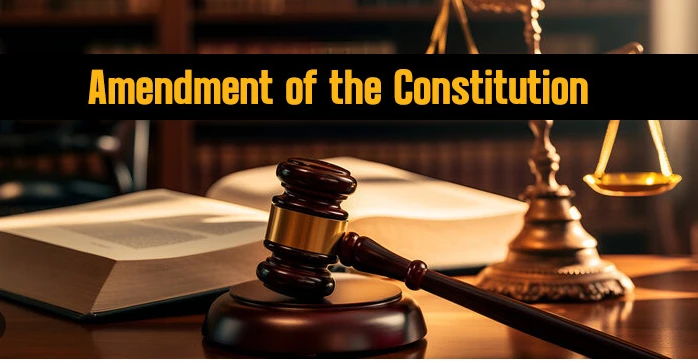Draft of 26th amendment suggests creation of Constitutional Division within SC

Stay tuned with 24 News HD Android App

The proposed draft of the 26th constitutional amendment has suggested creation of Constitutional Division within the Supreme Court, which will oversee constitutional appeals and the hearing of cases, reported 24NewsHD TV channel.
The draft, comprising 12 pages and 24 key points suggests major reforms in the judiciary and the electoral framework in the country. A three-member bench, constituted by the three senior-most judges of this division, will handle cases previously under the original jurisdiction of the Supreme Court.
The proposed changes emphasize equitable representation of judges from all provinces, aimed at balanced judicial structure. Notably, no Supreme Court judge will have the authority to hear suo motu cases, constitutional appeals, or presidential references independently.
The draft introduced a new Article 191A, declaring a healthy and sustainable environment a fundamental right. Additionally, amendments to existing articles aim to restrict judicial review of summaries submitted by the prime minister or cabinet. The reforms had also proposed alterations to the composition and functioning of the judicial commission and the Supreme Judicial Council.
The government has proposed permission to dual citizens to contest the elections, however, he will be bound to quit his dual nationality within 90 days.
As per the details, the proposed draft addresses various aspects of governance, judicial appointments, and the powers of key officials. One significant proposal includes amending Clause 4 of Article 48, which states that the advice given by the President, the Cabinet, and the Prime Minister of the country cannot be challenged in any forum.
Another major proposed change is to Article 63A, which pertains to voting procedures within political parties. The government’s amendment would allow the votes cast by lawmakers against the instructions of their party’s leader to be counted. After such a vote, the party leader would retain the authority to take action against the dissenting members.
The government has also suggested amending Article 111, allowing provincial assembly discussions on legal matters to involve not just the Attorney General but also legal advisors, expanding their influence in legislative matters. One of the more significant reforms concerning the appointment of judges, outlined in a proposed amendment to Article 175A. The Judicial Commission would be tasked with reviewing the performance of High Court judges, and a new procedure for appointing Supreme Court judges is suggested.
The proposal includes forming a judges’ appointment committee comprising two government members – a senator and an MNA proposed by the PM and two opposition members nominated by the opposition leader with additional parliamentary input. Additionally, the 12-member parliamentary committee comprised eight members from National Assembly and four Senators would have the power to appoint the Chief Justice of Pakistan, selecting among the three most senior judges. These reforms also include the provision for in-camera meetings during the appointment of the Chief Justice.
Reporter: Awais Kiyani
